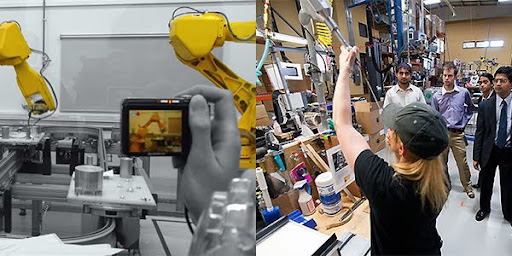Cambridge University’s Department of Engineering stands at the forefront of aeronautical and manufacturing engineering, pushing the boundaries of innovation in design, materials science, and sustainability. With a curriculum meticulously crafted to equip students with cutting-edge knowledge and practical skills, Cambridge prepares future leaders for advanced roles in both industry and research.
Innovation and Leadership in Aeronautical Engineering
Cambridge University’s aeronautical engineering program is renowned for its pioneering research and development in aviation technology. From aerodynamics to propulsion systems, students delve into the intricacies of flight mechanics and aircraft design under the guidance of world-class faculty and industry experts. The curriculum not only covers theoretical foundations but also emphasizes practical applications through hands-on projects and state-of-the-art laboratories.
Advancing Manufacturing Engineering
In the realm of manufacturing engineering, Cambridge leads the charge in driving innovation across diverse sectors, including automotive, aerospace, and biomedical industries. Students explore advanced manufacturing processes, additive manufacturing (3D printing), robotics, and automation, gaining insights into optimizing production efficiency, quality control, and sustainability. The department’s collaborations with industry leaders ensure that students are exposed to real-world challenges and cutting-edge technologies shaping the future of manufacturing.
Emphasis on Design and Materials Science
Central to Cambridge’s engineering excellence is its focus on design methodologies and materials science. Students are encouraged to explore innovative design concepts, computational modeling, and simulation techniques to optimize performance and functionality. Moreover, the department’s research in materials science spans from novel composite materials to sustainable materials solutions, addressing critical issues such as lightweighting, durability, and environmental impact.
Sustainability and Global Impact
Cambridge’s commitment to sustainability permeates its engineering curriculum, inspiring students to develop solutions that minimize environmental impact and promote sustainable practices within the aerospace and manufacturing sectors. From eco-friendly manufacturing processes to the development of low-carbon technologies, students are encouraged to integrate sustainability principles into their research and design projects, preparing them to tackle global challenges in a responsible and ethical manner.
Industry-Relevant Education and Research
The intersection of academia and industry is a hallmark of Cambridge’s engineering programs. Through industry partnerships, collaborative research initiatives, and industrial placements, students gain invaluable industry insights and hands-on experience that prepare them for leadership roles in global engineering enterprises. This close collaboration also ensures that research conducted at Cambridge remains at the forefront of technological innovation and addresses real-world challenges faced by the industry.
Conclusion
In conclusion, Cambridge University’s Department of Engineering stands as a beacon of excellence in aeronautical and manufacturing engineering, shaping the future of technology and innovation. By combining rigorous academic training with practical industry experience and a commitment to sustainability, Cambridge prepares students to become trailblazers in their fields, driving advancements that will redefine the future of aerospace, manufacturing, and beyond. As Cambridge continues to lead in engineering education and research, its impact on global innovation and sustainability will undoubtedly resonate for generations to come.



